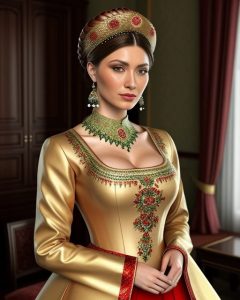Russian women played a significant and transformative role in Communist society, undergoing remarkable changes in their social, economic, and political status. The Communist regime aimed to establish gender equality, providing women with unprecedented opportunities that were previously inaccessible. In the early years of the Soviet Union, women were actively encouraged to enter the workforce, defying traditional gender norms that had confined them for centuries. They were granted equal access to education and employment, empowering them to pursue a wide range of careers. This newfound independence emboldened Russian women to challenge deeply ingrained patriarchal conventions and actively contribute to the progress of their nation.
While it is important to acknowledge the progress that was made, it is equally important to recognize that achieving complete gender equality remained a challenging goal within Communist society. Women often faced barriers such as gender-based discrimination, wage disparities, limited job prospects, and restricted access to leadership positions. Despite these challenges, Russian women exhibited remarkable resilience and made significant contributions across various fields including science, literature, arts, and politics. This era witnessed the emergence of remarkable figures such as Valentina Tereshkova, the trailblazing first woman in space, and Aleksandra Kollontai, an influential feminist and politician.
Furthermore, the Communist regime implemented policies to support working mothers, including measures to provide affordable childcare and maternity leave provisions. These efforts aimed to alleviate the burdens faced by women as they navigated their professional and familial responsibilities. However, it is essential to acknowledge that the Communist government’s approach to women’s rights was not solely motivated by a commitment to gender equality. Rather, it was driven by their recognition of the valuable contributions that women could make in building a strong and prosperous nation.
In conclusion, Russian women experienced a complex interplay of progress and challenges within Communist society. They seized the newfound opportunities available to them, shattered traditional gender roles, and left an indelible mark on various fields. However, true gender equality remained an ongoing aspiration, and women encountered hurdles in their pursuit of equal rights and opportunities. Nonetheless, their unwavering resilience and determination continue to serve as a timeless inspiration for future generations.

